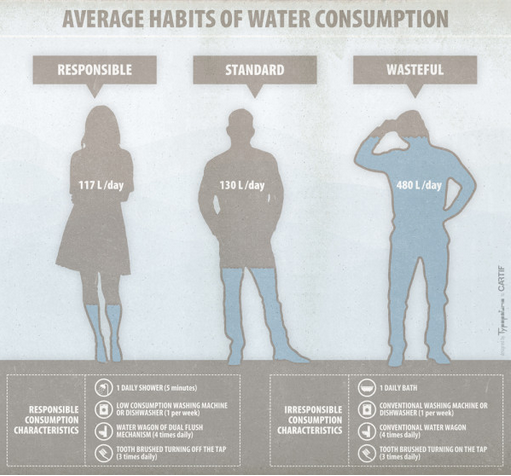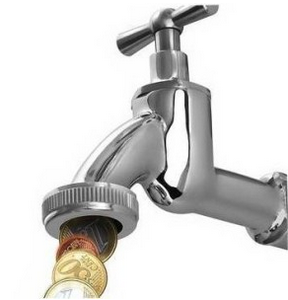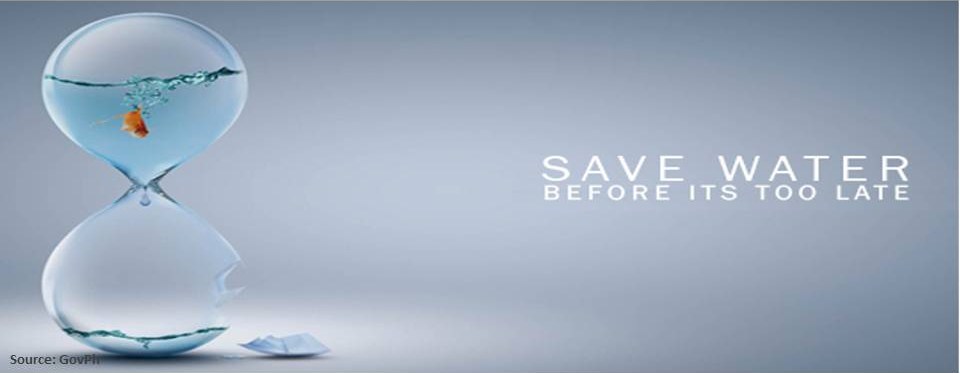Water is the most abundant substance in the human body as much as on Earth and is also essential for the survival of all known forms of life.

And despite its importance, every day more voices warn of the dangers looming on such a “precious element.” For example, the World Economic Forum met last January in Mount Davos (Switzerland) has placed the water crisis as the third overall risk over the next 18 months … and it will be the first risk to the world in a 10-year horizon.
Which are the causes that are positioning the water in this top ranking ahead of other potential problems such as oil or turf wars? Climate change, droughts, floods, population growth or demographic changes are some of the challenges around water. In addition, because of its close relation to agriculture, the idea of a “water war” breaking out in Africa, the Middle East or Asia is increasingly seen as a real possibility to the extent that these governments need to feed their populations.
To this long list of long-range dangers, today we want to draw your attention to a closest one: the lack of individual knowledge.
You certainly know the price of 1L of gasoline, but do you know what you pay for 1 L of water? First, you need to know that in Spain water supply is under municipal jurisdiction and each local authority sets its own prices and tariff structures. On average, in our country we pay 1.83 € per 1000 L of drinking water supplied to our households. Translated into usual domestic chores, a five-minute shower costs about 0.10 € and a bath about 0,55 €.

However, the key question is not what you pay for the drinking water, but what is the real cost to produce it and if this is a “fair and sustainable price” for the future.
Returning to the case of gasoline, in recent months we have witnessed a drastic fall in the price of crude. However, as consumers we have not benefited entirely from this drop as fuel is heavily taxed in our country (more than half of the final cost is linked to taxes).
Well, the water is at the opposite extreme, ie, it is heavily granted. While it is true that public money comes at the end from “the black box” of our taxes, there is a very important hint facing the taxpayer. It is difficult to value water if its real cost remains unknown and even when waste it goes so cheap. In the choice between taking a shower or a bath it is clear that today, the money does not come into the equation. And if you go for the more sustainable option probably it is because of the 100 L of water that you save when you do not fill the bathtub. But … what if the money began to count?
Apparently positive for the citizen, the situation is untenable and water will be, within a short period of time, a very high value resource that will need to be managed more efficiently.
In Spain, our supply networks are often obsolete and water losses due to leaks are incalculable. Would you be willing to pay a fair price for water if that would guarantee access to higher water quality and helps to improve infrastructure?

Knowing is the first step to value and informed citizens lead to a responsible society. As an example, a study sponsored by the Council of Almeria in 2002 detected the presence of natural radioactivity in the groundwater intended to supply the population. Furthermore, the existing water treatments at that time were not enough to provide water suitable for human consumption. Then, some municipalities launched information campaigns which sensitized population and a raise of the water price was approved. Thereby, new treatments installed allowed the access to a high quality drinking water.
In recent years, the average consumption of water per capita and day has decreased in our country. What you can keep doing? First, use common sense in your daily habits. Remember not to let the water run from faucets when not necessary, think about how you use the toilet if you have a dual flush mechanism, or if you use the washing and dishwasher machine with full loads etc. Also, when buying new appliances, consider criteria of water efficiency, or install aerators on faucets or shower heads to reduce the flow by 50%. If you are interested, you just can google it and read:
“It’s too late to be a pessimist”. In CARTIF we are seeking for solutions to current challenges and water is one of them. Sustainable use of water, removal of micro-pollutants (endocrine disruptors, trihalomethanes), water-energy nexus, water in the context of circular economy, are for us among the water challenges of this century. In future entries in this blog, we will be telling you our research in these lines.
- Leave no one behind - 12 January 2024
- Why Central Asia has become a hotspot for Europe? - 8 July 2022
- What if urban water networks could become a resource of renewable energy? - 21 June 2021
